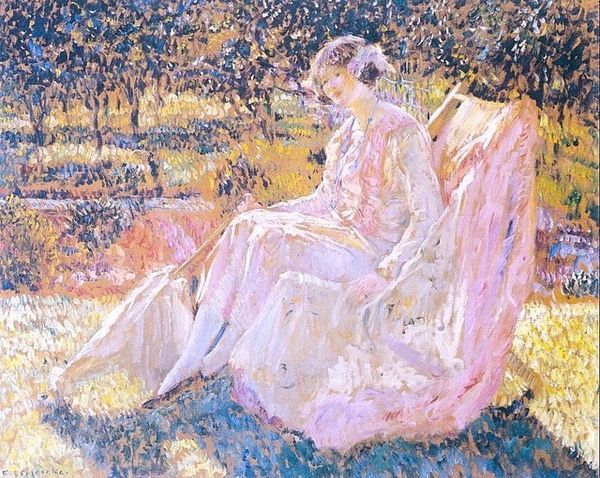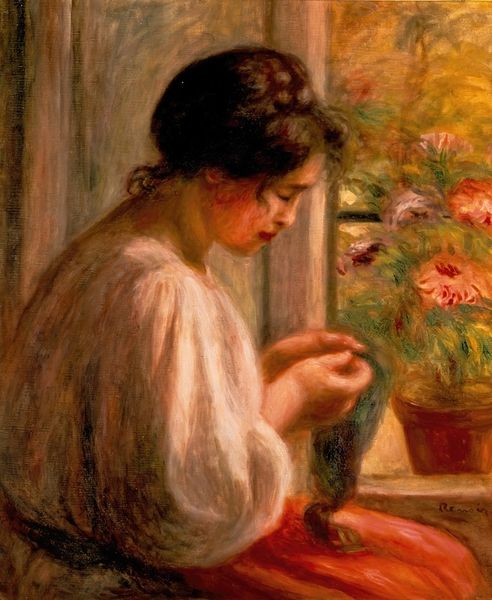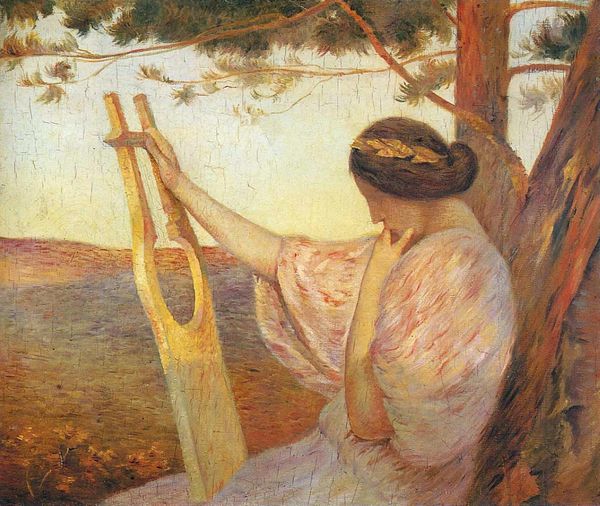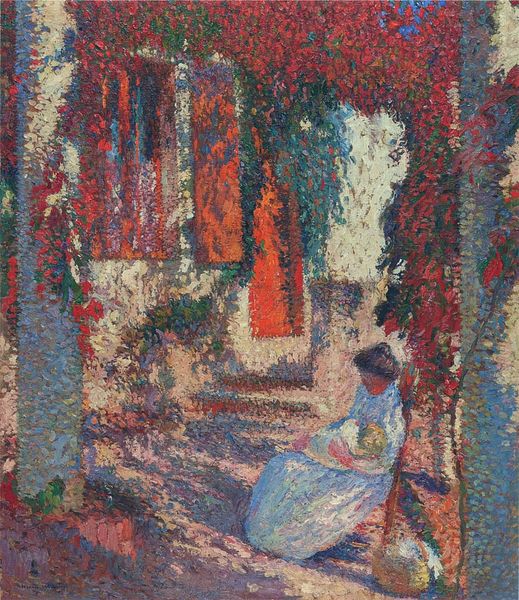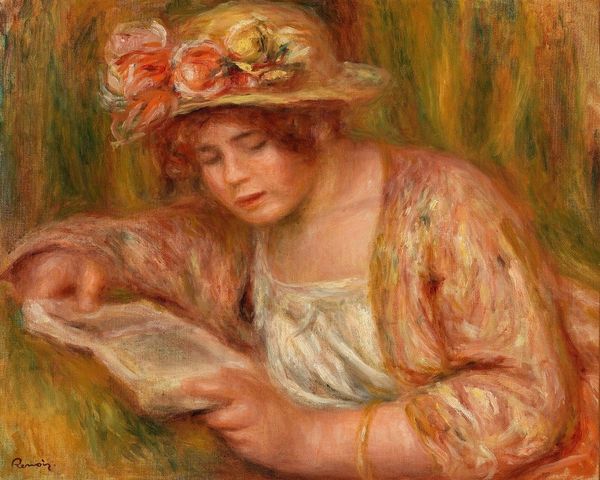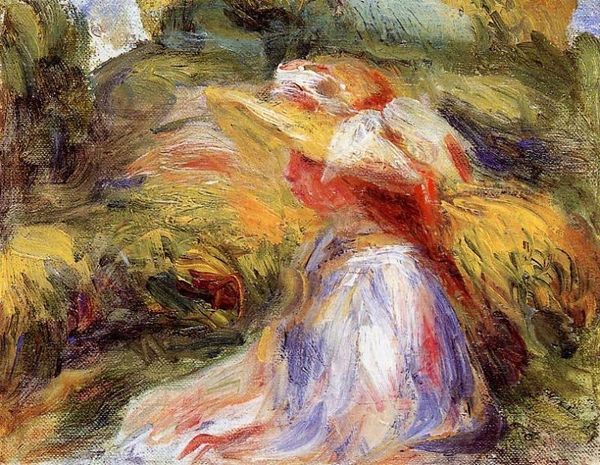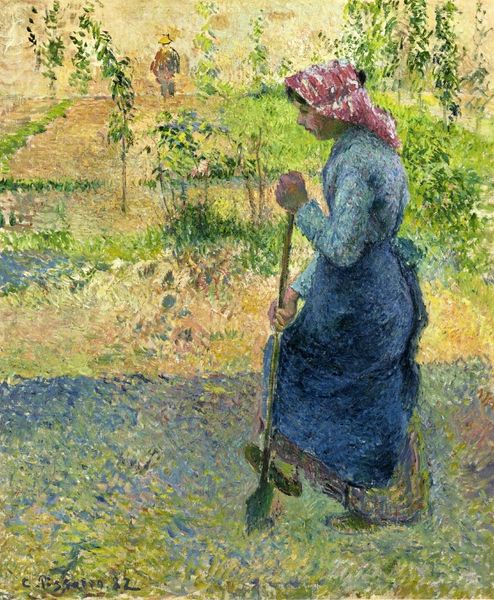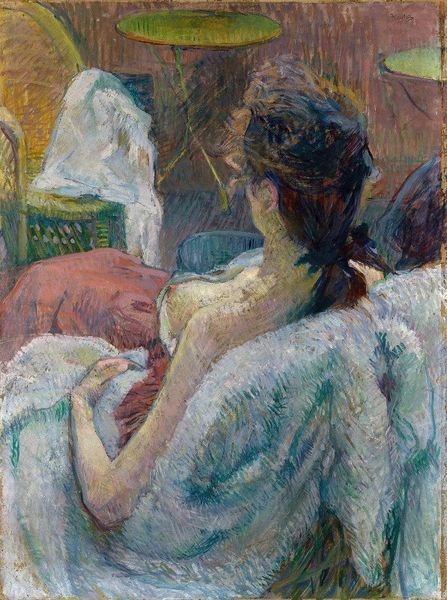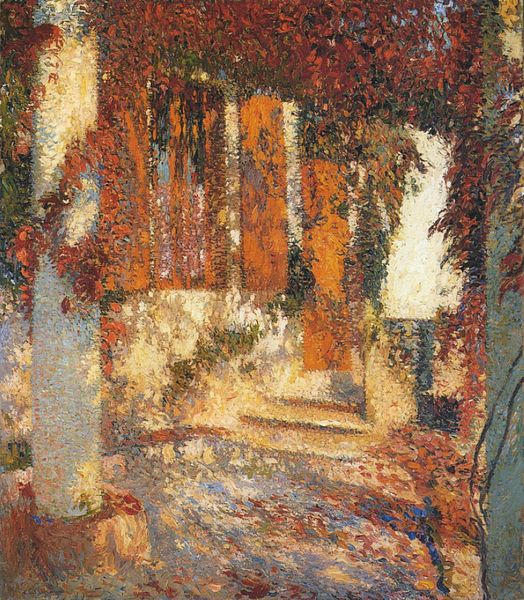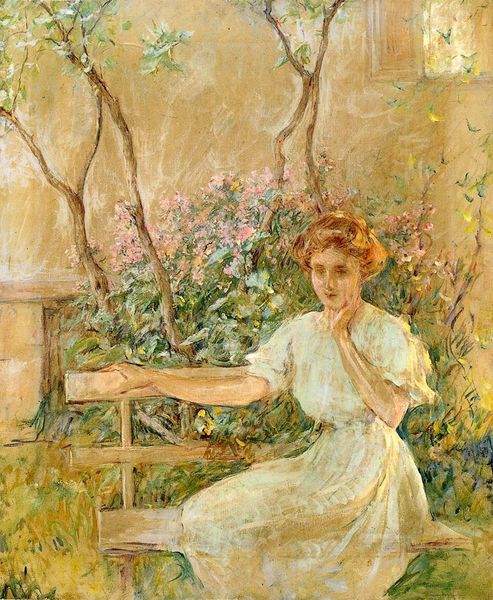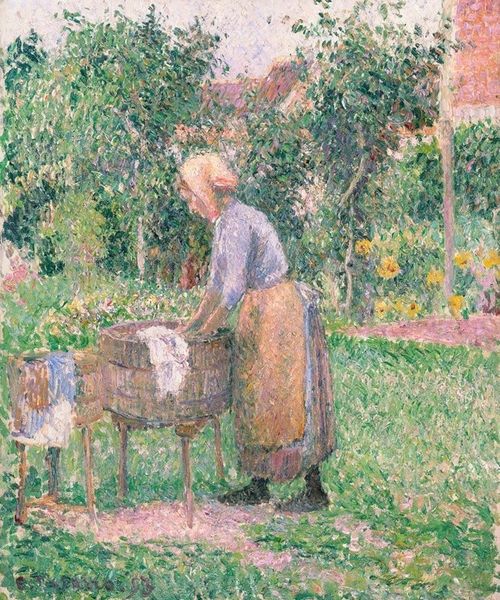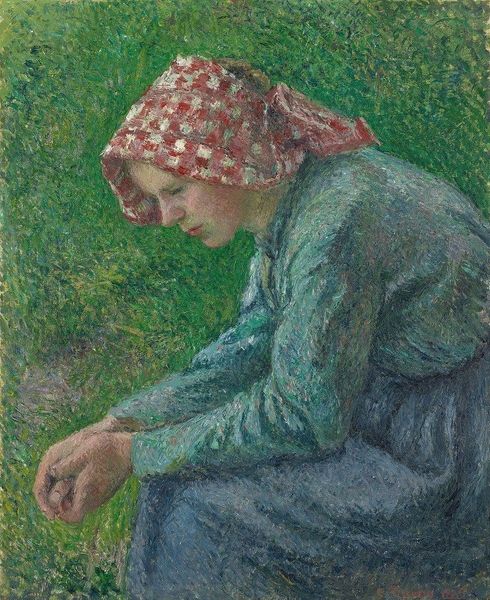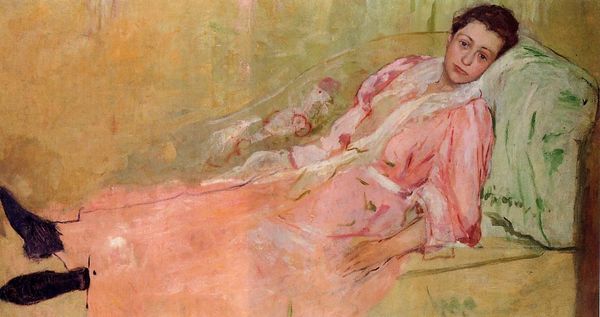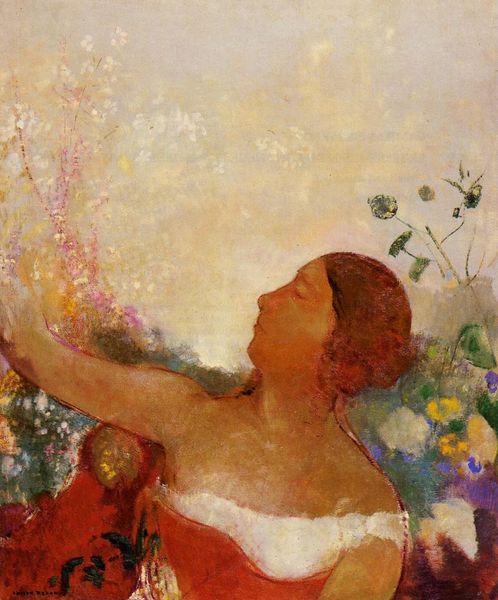
painting, oil-paint
#
portrait
#
painting
#
impressionism
#
oil-paint
#
impressionist landscape
#
figuration
#
oil painting
#
expressionism
#
expressionist
Copyright: Public domain
Curator: Welcome. Today we’ll be exploring Oleksa Novakivskyi’s painting, “My Muse (Portrait of the Wife).” It’s an oil painting capturing a moment of quiet contemplation. Editor: The overall effect is so melancholic, don’t you think? The figure is cast in soft, almost fading light, and there is this weight to the pose, the way her face rests on her hand. It’s not joyful, but profoundly…internal. Curator: Absolutely. Note the masterful use of Impressionistic techniques – the short, broken brushstrokes. Look at how they give texture to the fabric of her dress and the backdrop of roses. These details evoke a sensory experience and add to the expressive qualities of the painting. Editor: Yes, the flowers—or are they flames?—behind her head form a halo, both naturalistic and intensely emotional, hinting at a powerful psychological narrative. I also observe the artist positioning his wife centrally; as his muse, is she also trapped, enclosed within a small domesticity by marriage? Curator: It's interesting to read the rose patterns that way—it might also reveal details about Novakivskyi’s views on his relationship. The title indicates that the image isn't merely a depiction but also signifies an acknowledgement of his artistic inspiration. She, his wife, is the embodiment of beauty for the artist and essential for artistic practice. Editor: That acknowledgement, as you point out, complicates the sadness of her affect. Can we know from an isolated image the specific meaning it embodies? Maybe he felt inspired to create the work only through moments of his own profound sorrow. Curator: Precisely. Consider the history and the socio-political factors—that as Ukrainians sought to establish and claim autonomy the need to create new art reflecting that goal—artists sought muses as a source of pride in their culture and future goals. Editor: I understand this relationship is vital for artistic practice but perhaps detrimental for those confined within its limits. Thank you for the added perspectives, which clarify aspects within "My Muse" I would have otherwise missed. Curator: Thank you. Examining an artist's practice by interpreting the art piece can make for fresh understandings for what muse means.
Comments
No comments
Be the first to comment and join the conversation on the ultimate creative platform.
